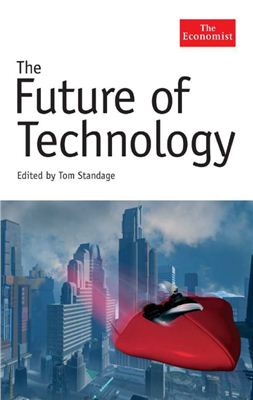Bloomberg Press, 2005. - 358 pages.
Drawing on the best technology writing that has appeared in The Economist, this collection is a thought-provokiing guide to where we are and where we are headed as we continue and implement the unprecendented technological innovation and challenges of our age.
To understand the future of technology, start by looking at its past. From the industrial revolution to the railway age, through the era of electrification, the advent of mass production and finally to
the information age, the same patte keeps repeating itself. An exciting, vibrant phase of innovation and financial speculation is followed by a crash; then begins a longer, more stately period during which the technology is widely deployed. Consider the railway mania of the 19th century,
the dotcom technology of its day. Despite the boom and bust, railways subsequently proved to be a genuinely important technology and are still in use today – though they are not any longer regarded as technology by most people, but as merely a normal part of daily life.
Drawing on the best technology writing that has appeared in The Economist, this collection is a thought-provokiing guide to where we are and where we are headed as we continue and implement the unprecendented technological innovation and challenges of our age.
To understand the future of technology, start by looking at its past. From the industrial revolution to the railway age, through the era of electrification, the advent of mass production and finally to
the information age, the same patte keeps repeating itself. An exciting, vibrant phase of innovation and financial speculation is followed by a crash; then begins a longer, more stately period during which the technology is widely deployed. Consider the railway mania of the 19th century,
the dotcom technology of its day. Despite the boom and bust, railways subsequently proved to be a genuinely important technology and are still in use today – though they are not any longer regarded as technology by most people, but as merely a normal part of daily life.

